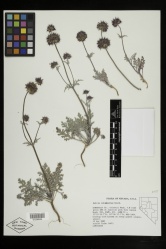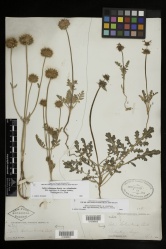Salvia columbariae (seed)
From AHPA Botanical Identity References Compendium
(Difference between revisions)
(add askbox) |
(add USD 1918 information (macroscopic)) |
||
| Line 27: | Line 27: | ||
=Macroscopic Characteristics= | =Macroscopic Characteristics= | ||
| + | {| border=1 | ||
| + | | | ||
| + | {{Macroscopy | source=United States Dispensatory (1918) | ||
| + | | description=The seed is oblong-ovate, somewhat flattish, from 1 to 8 mm. in length, at one end there is a small, dark line, forming a slight projection, which is the microphyle of the seed, and this, when exposed to moisture, opens in a star-shaped or scalloped manner, emitting the growing embryo. The seed is smooth and glossy, and is surrounded by a transparent epithelium, swelling very largely when in water. The testa is darkish-gray, striated with dark brown lines, running diagonally, and dotted, forming a very beautiful variegated surface; when pressed or crushed under a spatula it bursts at the hilum, exposing the cotyledons and the oil cells, leaving an oily stain upon paper. Internally the testa is dark, grayish-brown, perfectly smooth, glossy, and devoid of the external variegations or striae. It contains the embryo, with the radical pointing towards the hilum, and a white, mucilaginous substance much resembling unrendered fat.}} | ||
| + | |} | ||
=Microscopic Characteristics= | =Microscopic Characteristics= | ||
Latest revision as of 17:21, 7 April 2015
Contents |
Nomenclature
Salvia columbariae Benth. Lamiaceae
Standardized common name (English): chia
Botanical Voucher Specimen
|
|
|
Organoleptic Characteristics
Macroscopic Characteristics
|
Microscopic Characteristics
High Performance Thin Layer Chromatographic Identification
Supplementary Information
Sources
- ↑ Images courtesy of the C.V. Starr Virtual Herbarium of the New York Botanical Garden http://sciweb.nybg.org/science2/VirtualHerbarium.asp
- ↑ Images courtesy of the C.V. Starr Virtual Herbarium of the New York Botanical Garden http://sciweb.nybg.org/science2/VirtualHerbarium.asp
- ↑ United States Dispensatory (1918)

